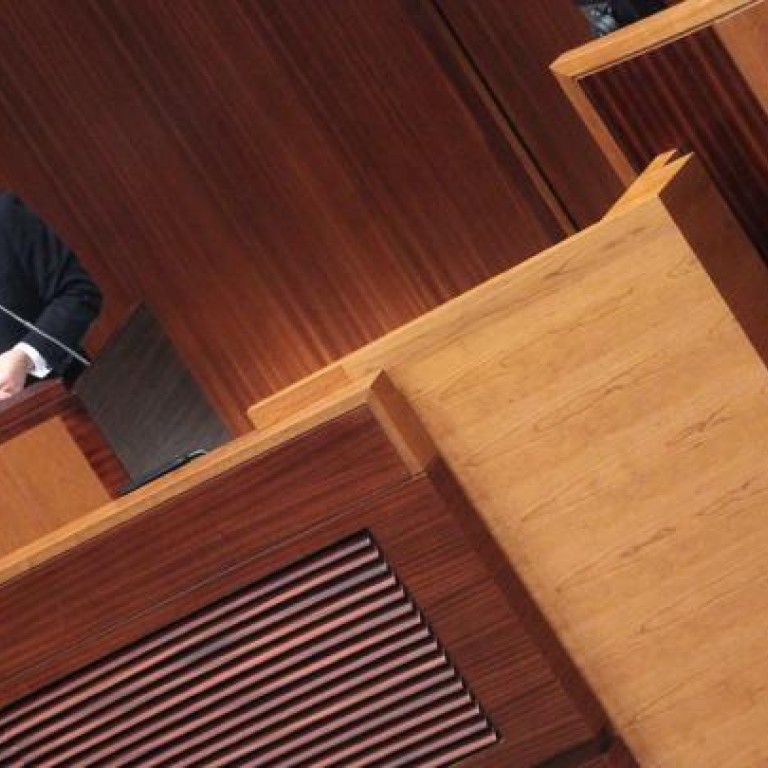
Four more ways officials break the spirit of Hong Kong's Basic Law
From the new discriminatory homebuyer's stamp duty to schools funding, the government is not living up to the city's constitution
I confess I am not as familiar with Hong Kong's Basic Law as I probably should be.
I'm sure it's a worthy enough document. But 100 pages of constitutional promulgation is not my idea of an entertaining read.
readers are made of sterner stuff. In the past few days, a number have written in to point out three areas in which the recent behaviour of the Hong Kong government appears to be in direct contravention of the city's mini-constitution.
First, there is the way the government jacked up its special stamp duty last month and slapped a punitive buyer's stamp duty on non-resident purchasers of local homes.
From now on, anyone selling a residential property within six months of buying it will be hit with an extra 20 per cent tax on the sale. If you sell within a year, you will pay 15 per cent, and in less than three years, 10 per cent.
In addition, all companies and any individuals who are not Hong Kong permanent residents buying a home in the city will now have to pay an extra 15 per cent tax on their purchase.
These steps, ostensibly aimed at quelling speculation, follow the government's decision in September to restrict home sales at some new developments to Hong Kong permanent residents only.
Several readers have pointed out that although these measures might be popular, they appear to run contrary to Article 105 of the Basic Law, which obliges the government to "protect the right of individuals and legal persons to the acquisition, use, disposal and inheritance of property".
I can't say whether the government is in breach of the letter of the Basic Law. That would be up to a court to determine.
But by imposing discriminatory taxes on some people and on companies - legal persons in the jargon - the government is effectively restricting their freedom to buy and sell on equal terms with everyone else. That clearly breaks the spirit of Article 105.
Next, there is the government's lamentable failure to meet its own modest targets on air pollution; a failure dissected in toe-curling detail by the Audit Commission in a report published last week.
Considering that these targets were introduced 25 years ago and that in that time Hong Kong's pollution has only got worse, to the grave detriment of the people's health, one reader wonders whether this failure places the government in breach of Article 119 of the Basic Law, which requires it to "pay regard to the protection of the environment".
Again, a court would have to decide on the letter of the law, but reading the Audit Commission's report, no one can doubt that the government has paid zero regard to the spirit of Article 119.
Then another reader notes Eddie Ng's letter to the earlier this week about government funding for the English Schools Foundation.
In his letter, the education secretary declared that "ESF schools offer a non-local curriculum. It is not our established policy to provide recurrent subvention to schools offering a non-local curriculum." Therefore, "the existing recurrent subvention will be phased out".
Given that the government has funded the ESF since 1967, our reader notes that terminating the subsidy now will clearly contravene Article 144 of the Basic Law, which obliges it to "maintain the policy previously practised in Hong Kong in respect of subventions for non-governmental organisations in fields such as education".
In addition to those three ways, the Hong Kong government appears to be breaking the Basic Law, off the top of my head I can think of at least one other.
Article 107 declares that the government should "keep the budget commensurate with the growth rate of its gross domestic product".
Yet in his latest budget speech delivered in February, Financial Secretary John Tsang boasted that "for my five budgets, I have increased government expenditure by nearly 70 per cent. This exceeds GDP growth of 21 per cent for the same period."
What's more, over that time, the Hong Kong government ran a cumulative budget surplus of HK$300 billion, which implies it couldn't have been taking seriously its Basic Law obligation, also under Article 107, to "strive to achieve a fiscal balance".
I have no doubt that in each of these four cases the government could argue it is in perfect compliance with the letter of the Basic Law.
But it is hard to escape the impression that our officials are riding rough-shod over the law's spirit.
That's not good enough. Hong Kong's government has a duty to obey both the spirit and the letter of the Basic Law.
Now I'll have to sit down and read the damn thing to see where else the government is failing in its duty.

